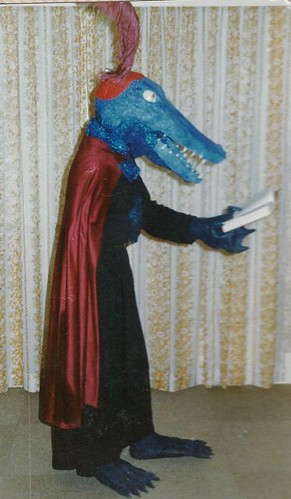The term "Mary Sue" comes from the name of a character created by Paula Smith in 1973 for her
parody story "A Trekkie's Tale"
[2]:15 published in her
fanzine Menagerie #2.
[3] The story starred Lieutenant Mary Sue ("the youngest Lieutenant in the fleet — only fifteen and a half years old"), and satirized unrealistic
Star Trek fan fiction.
[4] Such characters were generally original female adolescents who had romantic liaisons with established canonical adult characters, or in some cases were the younger relatives or protégées of those characters. By 1976
Menagerie's editors stated that they disliked such characters, saying:
Mary Sue stories—the adventures of the youngest and smartest ever person to graduate from the academy and ever get a commission at such a tender age. Usually characterized by unprecedented skill in everything from art to zoology, including karate and arm-wrestling. This character can also be found burrowing her way into the good graces/heart/mind of one of the Big Three [
Kirk,
Spock, and
McCoy], if not all three at once. She saves the day by her wit and ability, and, if we are lucky, has the good grace to die at the end, being grieved by the entire ship.
[5]
"Mary Sue" today has changed from its original meaning and now carries a generalized, although not universal, connotation of wish-fulfillment and is commonly associated with
self-insertion. True self-insertion is a literal and generally undisguised representation of the author; most characters described as "Mary Sues" are not, though they are often called "proxies"
[6] for the author. The negative connotation comes from this "wish-fulfillment" implication: the "Mary Sue" is judged as a poorly developed character, too perfect and lacking in realism to be interesting.
[7]





